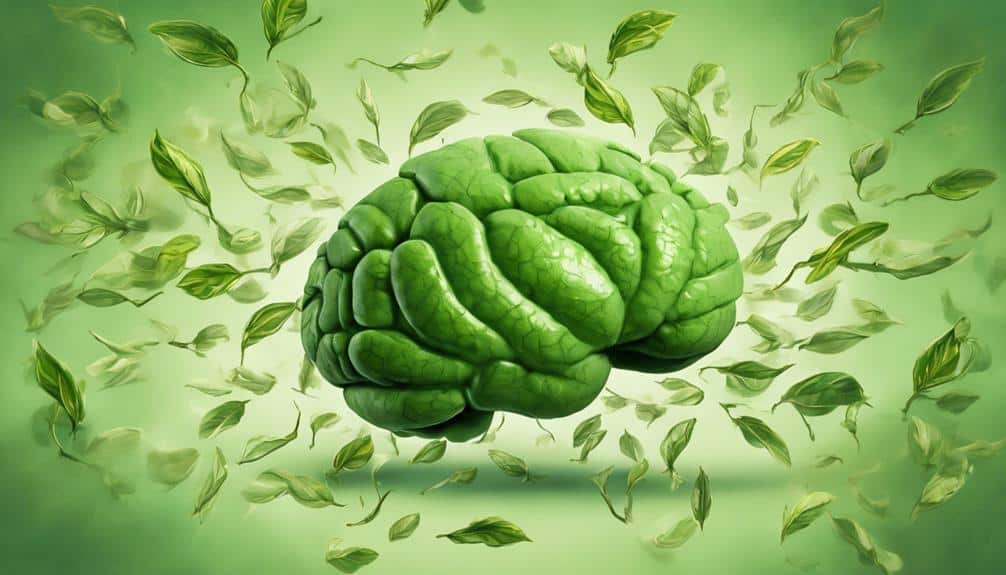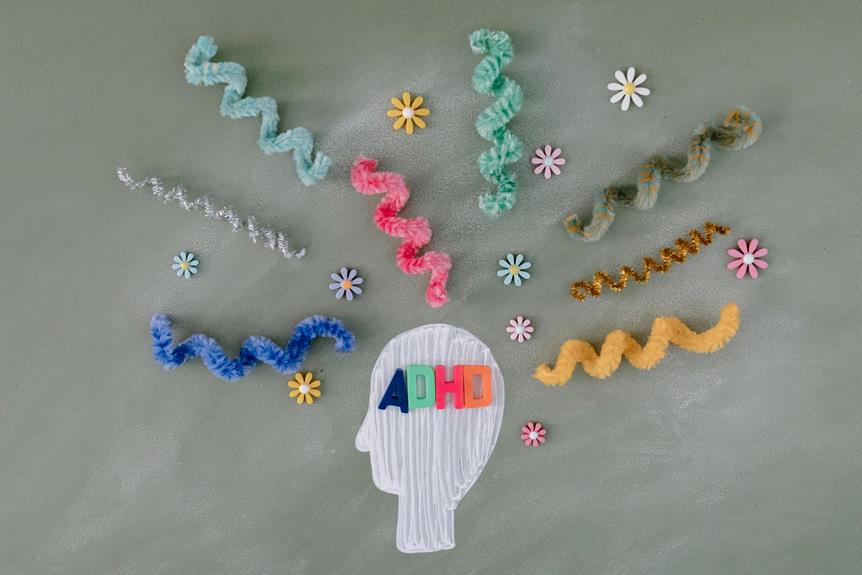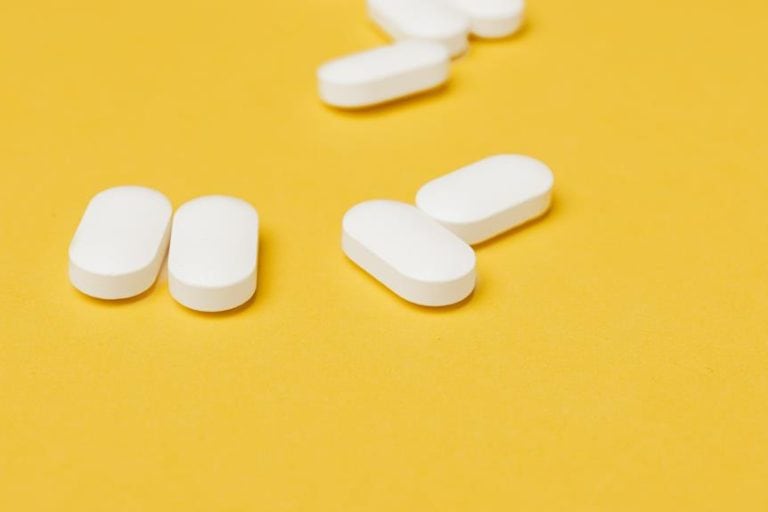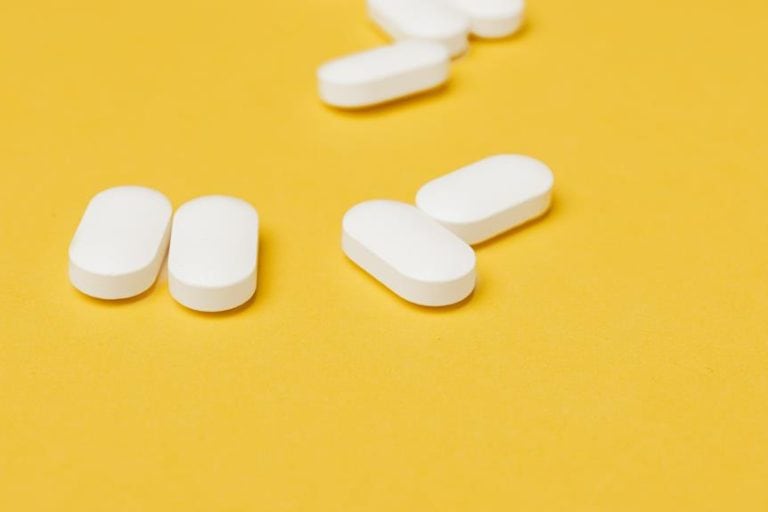L-Theanine Benefits Adhd
Coincidentally, have you ever wondered if a simple amino acid could offer benefits for managing ADHD symptoms?
The potential of L-Theanine in enhancing attention and focus in individuals with ADHD is a topic worth exploring further.
As we investigate the mechanisms behind this compound, we may uncover valuable insights into how it could potentially complement existing treatment strategies.
Key Takeaways
- L-Theanine improves attention, focus, and cognitive function in individuals with ADHD.
- Enhances sustained attention, impulse control, and cognition in children with ADHD.
- Combining with caffeine reduces impulsivity and enhances focus.
- Alleviates sleep disturbances and improves cognitive performance in individuals with ADHD.
What Is L-Theanine?

L-Theanine, commonly found in green tea and certain mushrooms, is an amino acid known for its calming and relaxing effects on the mind without inducing drowsiness. As an amino acid, it plays an essential role in various physiological processes. Studies have shown that L-Theanine may have positive effects on attention, focus, and cognitive function. It's available as a supplement and is generally well-tolerated by most individuals.
Green tea, a popular source of L-Theanine, has been consumed for centuries for its potential health benefits. The calming properties of L-Theanine have been of particular interest in recent research, especially in relation to conditions like ADHD. By promoting relaxation without sedation, L-Theanine may help improve attention and focus in individuals with ADHD, potentially reducing impulsivity as well. The synergy between L-Theanine and caffeine, often found together in green tea, may further enhance these cognitive effects. Overall, the calming nature of L-Theanine makes it a promising supplement for supporting cognitive function in various populations, including those with ADHD.
How L-Theanine Helps ADHD

Evidence suggests that the amino acid L-Theanine can be beneficial in enhancing attention and focus in individuals with ADHD. This natural compound has shown promising results in improving cognitive performance and reducing impulsivity among those with ADHD. Studies indicate that L-Theanine can enhance sustained attention, a key challenge for individuals with ADHD. When combined with caffeine, L-Theanine has demonstrated potential in managing symptoms of ADHD effectively. Additionally, L-Theanine may help alleviate sleep disturbances commonly experienced by individuals with ADHD, consequently potentially improving overall well-being.
The mechanisms through which L-Theanine exerts these effects in ADHD are still being explored. However, the current research provides compelling evidence for the positive impact of L-Theanine on attention, focus, and impulsivity in individuals with ADHD. While more studies are needed to fully understand the efficacy of L-Theanine as a complementary treatment for ADHD, the existing findings highlight its potential to enhance cognitive function and alleviate symptoms associated with the disorder.
Research on L-Theanine Efficacy

Research on L-Theanine efficacy reveals its potential to greatly improve sustained attention and cognitive performance in individuals with ADHD, particularly children. Here are key findings supporting the efficacy of L-Theanine in managing ADHD symptoms:
- Studies demonstrate that L-Theanine can enhance sustained attention and cognitive performance in children with ADHD.
- Research suggests that a combination of L-Theanine, caffeine, and their synergistic effects may improve focus and reduce impulsivity in individuals with ADHD.
- L-Theanine has been shown to decrease mind wandering during attention tasks, indicating its potential to enhance attentional processes in children with ADHD.
- The combination of L-Theanine and caffeine shows promise in providing therapeutic benefits for managing ADHD symptoms, but further research is needed to determine the most favorable dosage and long-term effects of L-Theanine in ADHD treatment.
These findings underscore the potential of L-Theanine as a valuable adjunct in the management of ADHD, with implications for improving focus, attention, and cognitive performance in affected individuals.
Combining L-Theanine With ADHD Treatment

Combining L-theanine with ADHD treatment enhances sustained attention, impulse control, and overall cognition in children with ADHD. Research indicates that the combination of L-theanine with caffeine can greatly improve cognitive performance and sustained attention while decreasing impulsivity in individuals with ADHD.
Studies using functional magnetic resonance imaging (fMRI) have shown that this combination reduces task-related brain activity in the default mode network, indicating a positive impact on cognitive function. Compared to placebo, L-theanine with caffeine has demonstrated effectiveness in managing ADHD symptoms, making it a potential therapeutic option for children with ADHD.
Recommended Dosage of L-Theanine

I'll outline the effective dosage range of L-theanine.
The best timing for best results and important safety considerations.
It's important to take these factors into account when determining the appropriate L-theanine dosage for ADHD management.
Consultation with a healthcare professional is advised to guarantee the safe and effective use of L-theanine in your treatment regimen.
Effective L-Theanine Dosage
An effective dosage range of L-theanine for managing ADHD symptoms typically falls between 200 to 400 mg per day, with individual variations based on factors such as age and weight. When considering the dosage of L-theanine for ADHD, it's essential to consult with a healthcare provider for personalized recommendations.
Here are some key points to understand about the effective dosage of L-theanine:
- Studies suggest an ideal range of 200-400 mg per day for managing ADHD symptoms.
- The dosage may need adjustment based on individual factors like age, weight, and health conditions.
- Starting with a lower dose, around 200 mg, and then adjusting based on response is advisable.
- Higher doses, up to 400 mg per day, may be considered for more significant benefits in ADHD management.
Timing for Best Results
For best results in managing ADHD symptoms with L-theanine, timing the dosage intake strategically throughout the day is essential for maintaining consistent effects.
The recommended dosage typically falls between 100-400 mg per day, with splitting the dosage proving beneficial. Taking L-theanine in the morning, especially before tasks requiring focus, can enhance its benefits. Some individuals find that a split dosage of 200 mg in the morning and 200 mg in the afternoon is effective for managing ADHD symptoms.
It's critical to recognize that individual responses may vary, necessitating personalized dosing and timing. Consulting a healthcare provider is advised to determine the most suitable L-theanine dosage and timing for best benefits in addressing ADHD.
Safety Considerations
Safety considerations regarding the recommended dosage of L-theanine for managing ADHD symptoms are important for minimizing potential side effects and optimizing treatment outcomes.
When considering dosages of L-theanine for ADHD, several key points should be taken into account:
- Start Low, Go Slow: Initiate with lower dosages (e.g., 200 mg) and gradually increase to assess individual response.
- Consult Healthcare Provider: Seek guidance from a healthcare provider to determine the appropriate dosage based on specific factors like age, weight, and overall health condition.
- Beware of Excessive Intake: Avoid excessive consumption of L-theanine as it may result in adverse effects such as gastrointestinal disturbances or low blood pressure.
- Personalized Dosing: Tailoring dosages to individual needs is vital for maximizing the safety and efficacy of L-theanine in managing ADHD symptoms.
Potential Side Effects of L-Theanine

When considering the potential side effects of L-Theanine, it's important to be aware of the varying quality of supplements in the market. While L-Theanine sourced naturally from teas and mushrooms generally has minimal risks, the quality of L-Theanine supplements isn't regulated, leading to potential discrepancies in composition and purity.
Some amino acids present in teas may counteract the anti-tumor qualities of L-Theanine, highlighting the importance of understanding the complete profile of components in L-Theanine products. Individuals undergoing chemotherapy should consult a healthcare professional before incorporating L-Theanine into their routine, as interactions with treatment medications could occur.
Ongoing research is shedding light on both the benefits and risks associated with L-Theanine, emphasizing the need for further investigation to fully understand the implications of its consumption. Staying informed about the source and quality of L-Theanine supplements is critical in minimizing potential side effects and maximizing the benefits of this amino acid.
Incorporating L-Theanine Into Daily Routine

Consider integrating L-Theanine into your daily routine to potentially benefit in managing ADHD symptoms. Here are some key points to keep in mind:
- Start with a low dosage: Begin with a small amount of L-Theanine and gradually increase it based on how your body responds. Consult with your healthcare provider before making any significant changes.
- Monitor effects on focus and attention: Regularly assess how L-Theanine impacts your ability to concentrate and stay attentive throughout the day. Keep track of any improvements or changes in your symptoms.
- Experiment with timing: Try taking L-Theanine at different times of the day to determine when it's most effective for you. Some individuals find it helpful to take it in the morning, while others prefer it in the afternoon or evening.
- Keep a journal and consult with your healthcare provider: Record your experiences with L-Theanine in a journal to track progress. Discuss any observations or concerns with your healthcare provider to make sure you're optimizing its benefits for managing ADHD symptoms.
Frequently Asked Questions
Does L-Theanine Increase Dopamine?
L-Theanine influences dopamine regulation indirectly by balancing neurotransmitters in the brain, potentially enhancing cognitive functions, mood regulation, and attention. While not a direct booster, it may benefit brain function, stress reduction, and mental clarity.
Does L-Theanine Help With Focus?
I've found that L-theanine enhances focus by promoting a calm state, reducing distractions. Studies suggest this amino acid, often paired with caffeine, can boost attention. Minimal side effects and positive user experiences make it a promising option.
Is L-Theanine a Stimulant?
L-Theanine is not a stimulant; it enhances relaxation, focus, and cognitive performance without causing drowsiness. Its effects on brain function include promoting a relaxation response, balancing neurotransmitters, and providing anxiety relief.
Who Should Not Take Theanine?
I should not take theanine if I'm allergic to it, have low blood pressure, or take medications for high blood pressure or stimulants. Pregnant or breastfeeding women and individuals with specific health conditions should consult a healthcare provider first.
Conclusion
To sum up, while L-Theanine shows promising benefits for managing ADHD symptoms, some may question its efficacy due to the need for more research. However, studies have shown improvements in attention and focus when combined with caffeine.
Consulting a healthcare provider before incorporating L-Theanine into an ADHD management plan is vital for safe and effective use. With proper guidance, L-Theanine may offer a natural and complementary approach to managing ADHD symptoms.







